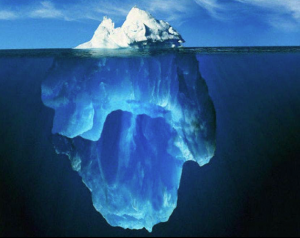I chose this image from stock photography to accompany this blog post both for the refreshing effect as we experience scorching heat, and for the symbolism. Icebergs are more dangerous for what they conceal as for what they reveal. The depth of an iceberg can exceed the height of a Manhattan skyscraper, making it very risky to the unsuspecting sailor. So it is with public finances, as our long-term liabilities remain obscured but what is above the surface is scary enough. And one community has taken desperate measures that may become increasingly common as the economy struggles.
North Las Vegas, the fourth largest city in Nevada, has declared a state of emergency. The city invoked a rarely used law to mobilize resources to respond to unforeseen disasters and invoke emergency powers. But it wasn’t an earthquake or other extreme weather event that caused the city’s crisis. North Las Vegas is responding to a fiscal emergency. Years of declining tax revenues, growing expenses and rising joblessness led city officials to apparently conclude that they had exhausted their options.
North Las Vegas is among the most distressed cities in a troubled state. Nevada has the highest unemployment rate in the country and a crisis in the rate of home foreclosures and personal bankruptcies. But while the financial pressures are severe, the disaster declaration may be over-reaching. Two cities in neighboring California, Stockton and Los Angeles, attempted similar emergency declarations that could not survive legal challenges. Officials in Buffalo, NY were more successful when a court upheld a freeze on public employee wages, allowing the city time to address its deficit. North Las Vegas officials concede that they are not experiencing a Hurricane Katrina-like event in their city. But the disaster declaration will allow them to suspend scheduled increases in the salaries of city workers and suspend other contracts. The question remains – these short-term measures only buy time. What are the unseen, longer-term costs? And what happens when a real (i.e., not contrived) disaster strikes?
